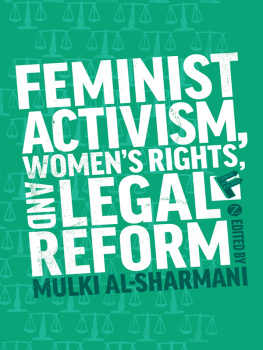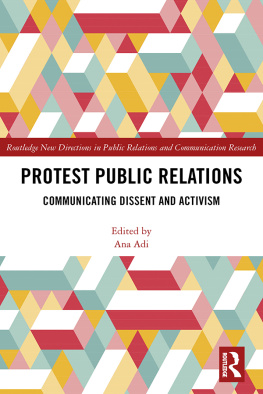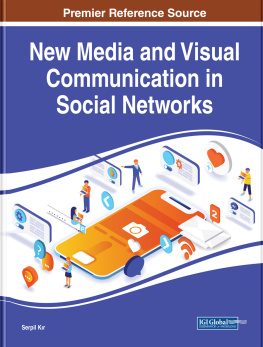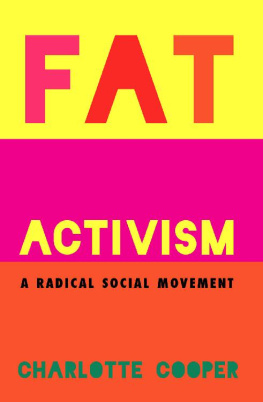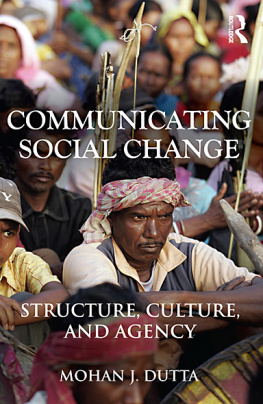
Beyond Prime Time Activism
In this accessible introduction to communication activism, organizer Karen Jeffreys and sociologist Charlotte Ryan draw on more than two decades of ongoing collaboration, using the Rhode Island Coalition for the Homeless (RICH) as a case study.
The book examines a community with shared values, decision-making, and conflict resolution procedures, tracking its organizing strategy and matched communication plan. The authors first describe a communication campaign during the welfare reform battles (19901995) in which they began to practice communication activism. In ongoing work with two organizations over the next two decades, they distill a model of communication activism that draws directly from vibrant traditions of empowerment communication in U.S. social movements and movements from the Global South.
Beyond Prime Time Activism provides students and researchers with an invaluable look at contemporary activism practices and with practical tools tried and tested in two decades of social movement engagement. This book is ideal for anyone participating in social change movements or studying how they navigate communication and media inequalities.
Charlotte Ryan teaches at the University of Massachusetts Lowell and codirects the Media Research Action Project (MRAP; www.mrap.info). She and Karen have worked together since 1990 in campaigns with the Coalition for Basic Human Needs (CBHN), the Rhode Island Coalition Against Domestic Violence (RICADV; www.ricadv.org), and RICH (www.rihomeless.org).
Rhode Islandbased Karen Jeffreys is a lifelong social justice organizer who specializes in communication and movement building. She has collaborated with groups organizing around social services, housing and homelessness, domestic violence, media, and racial justice. She offers regular community strategy workshops for state and national social justice activists.
Media and Communication Activism: The Empowerment Practices of Social Movements
Series editors: Claudia Magallanes Blanco, Alice Mattoni, and Charlotte Ryan
This Routledge series edited by Claudia Magallanes Blanco, Alice Mattoni, and Charlotte Ryan grapples with recurring issues facing practitioners, teachers, students, and scholars of communication activism; it addresses challenges to communication activism, as well as emancipatory practices that build culturally resonant, richly networked, multifaceted movement communication systems. Core series themes include:
- the power structures of media and communication activism;
- rights in the framework of media and communication activism; and
- outcomes, learning, and sustainable futures in media and communication activism.
This is a global series published in English, and the editors welcome submissions from authors who work primarily in other languages.
Beyond Prime Time Activism
Communication Activism and Social Change
Charlotte Ryan and Karen Jeffreys
For more information about the series, please visit: www.routledge.com/Media-and-Communication-Activism/book-series/MCA
First published 2019
by Routledge
52 Vanderbilt Avenue, New York, NY 10017
and by Routledge
2 Park Square, Milton Park, Abingdon, Oxon, OX14 4RN
Routledge is an imprint of the Taylor & Francis Group, an informa business
2019 Taylor & Francis
The right of Charlotte Ryan and Karen Jeffreys to be identified as authors of this work has been asserted by them in accordance with sections 77 and 78 of the Copyright, Designs and Patents Act 1988.
All rights reserved. No part of this book may be reprinted or reproduced or utilised in any form or by any electronic, mechanical, or other means, now known or hereafter invented, including photocopying and recording, or in any information storage or retrieval system, without permission in writing from the publishers.
Trademark notice: Product or corporate names may be trademarks or registered trademarks, and are used only for identification and explanation without intent to infringe.
Library of Congress Cataloging-in-Publication Data
Names: Ryan, Charlotte, 1949- author. | Jeffreys, Karen, 1960- author.
Title: Beyond prime time activism : communication activism and social change /
Charlotte Ryan and Karen Jeffreys.
Description: 1 Edition. | New York : Routledge, 2019. | Series: Media and
communication activism: The empowerment practices of social movements |
Includes bibliographical references and index.
Identifiers: LCCN 2018053775 (print) | LCCN 2018060889 (ebook) |
ISBN 9781315181219 (ebk) | ISBN 9781138744226 (hbk : alk. paper) |
ISBN 9781138744240 (pbk : alk. paper)
Subjects: LCSH: Social movements. | Public relations and politics. |
Mass mediaPolitical aspects. | Social change.
Classification: LCC HM881 (ebook) | LCC HM881 .R93 2019 (print) |
DDC 303.48/4dc23
LC record available at https://lccn.loc.gov/2018053775
ISBN: 978-1-138-74422-6 (hbk)
ISBN: 978-1-138-74424-0 (pbk)
ISBN: 978-1-315-18121-9 (ebk)
Typeset in Bembo
by Apex CoVantage, LLC
For Alice Trimiew, John Joyce, and Greg Maney, who demanded justice for all
Contents
PART I
Models
PART II
Practices
PART III
Sustaining Communication Activism
Guide
A long time ago, a taped oral history of a Mexican labor organizer fell into my hands. He described his life as a rural farmworker and later as a union organizer periodically in hiding or imprisoned during the more tumultuous decades of 20th-century Mexico. Of his many stories, one became for me a code to live by. Ive lost the tape, but this is roughly how he described his work:
When I meet new people, I do not pressure them to join a mobilization. I sit next to them and I put my hands around their heart. I say, Heart, you are a good heart. You have been hurt although you never wanted to hurt anyone. Then, I listen as they tell me about their lives. We sort the problems, and as we talk, the relation between their problems and everyones problems becomes clear.
This vignette captures the philosophy of Beyond Prime Time Activism : Communication Activism and Social Change (hereafter referred to as Beyond Prime Time ): To resolve social problems, communication activists in tandem with social justice organizers listen, then collaborate with individuals and communities experiencing social inequalities. To distill lessons from their experiences, they reflect together. This practice of reflection is called continuous inquiry. The group engaged in critical inquiry is called a learning community (Senge, 2000; Block, 1993).
As learning communities come to understand social problems better and begin to combat them, they build ties to related groups. In the process they form widening networks that can launch more organized challenges. From these networks emerge movements than can disrupt existing social arrangements and, in the process, catalyze previously unimagined solutions.
Movements, in essence, turn scattered individuals into a force capable of unified action. Individuals often recognize that their problems are not of their own making, nor can they solve these problems as individuals. But, realizing the magnitude of the problem faced, and their limited ability to resolve these problems, individuals may simply be moved from apathy to despairunless they encounter kindred spirits with whom to make common cause.


